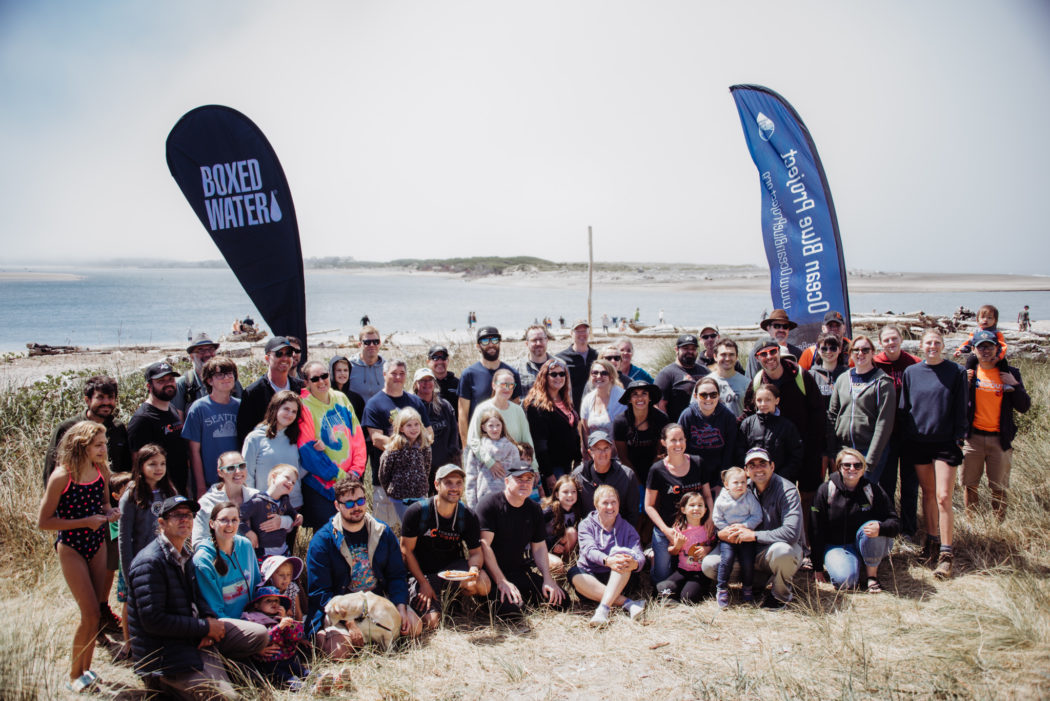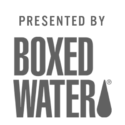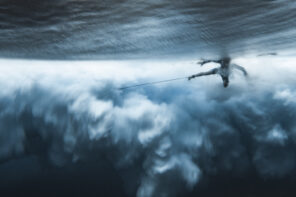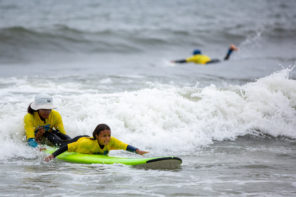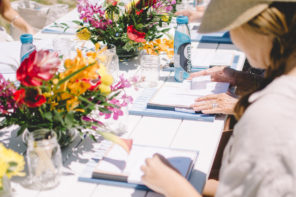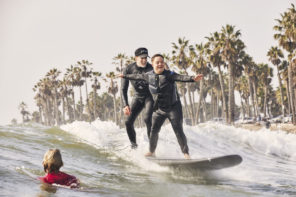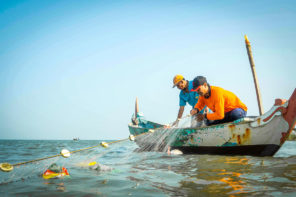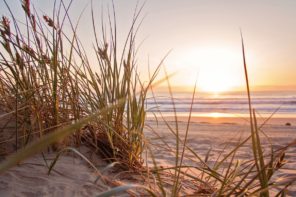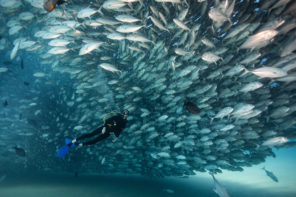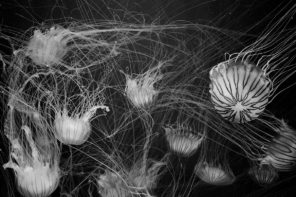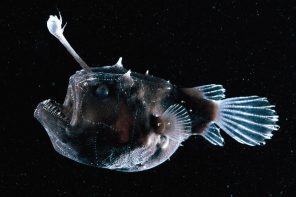An Interview with Ocean Blue Project’s Karisa Arterbury
Photo Courtesy of Ocean Blue Project
Boxed Water™ is changing our relationship with how we consume water. Store shelves are a sea of plastic, so they took a new approach. And they want to give a platform to humans taking a novel approach to the world’s problems. The following story is one of those humans.
Oprah once said “you can either see yourself as a wave in the ocean or you can see yourself as the ocean.” We folks at Whalebone like to see ourselves as the ocean. And so do the people over at Ocean Blue Project, which is an ocean cleanup organization whose goal is to help conserve and restore our beautiful ocean through cleanups, solutions, and youth education. Like we’ve said in the past, people helping people helping the ocean is a great thing. We were lucky enough to sit down with Director of Operations Karisa Arterbury to learn more about this inspiring non-profit, all the fun guys involved, her love for the ocean, and ways we (and you, yes you) can help.
Whalebone: Explain the importance of your mission of working with people of all different backgrounds, heritages and cultures.
Karisa Arterbury: Our mission was founded by a Choctaw tribal member and his son, Richard and Fleet Arterbury, which has created a holistic and upstream approach to how we work. A lot of people think about Ocean Blue as just removing plastic from the ocean and just working on the ocean, but we have a multi-pronged approach: we begin prevention [of plastic moving to the ocean] through youth and community education, along with working on waterways and the ocean. Working with people of all different backgrounds allows our team to see through many different unique lenses and come up with a variety of solutions. Richard grew up on a ranch around watermelon farmers and spent his childhood looking at soil and Earth and seeing the mycelium and fungi work wonders on the soil. This left an impression on him and made him who he is today, along with how he founded this nonprofit. His background in traditional ecological knowledge and how to work with nature—kind of like surfing and working with the waves—to do the cleanups in a “boots in the sand” approach has shaped Ocean Blue and our mission.
WB: How do you feel knowing the Ocean Blue Project has removed upwards of 240,000 lbs of debris from the world’s oceans since you started? What new initiatives are in the works to keep up this progress?
KA: It feels great knowing how much we have removed, but considering 8.5 million metric tons are going in every year, we still have a lot of work to do. Our goal is to recover one million pounds, and we need a lot more funding to make this truly impactful. We started Passion Projects, where we do comprehensive reviews of scientific literature and put that information in reports the general public can easily digest. One of the projects studied mortality rates of marine wildlife who had ingested plastic—how much plastic are they eating before they die? To make the biggest impact, we started a project at Kamilo Beach in Hawaii (known as Plastic Beach to the locals) where we hire locals to help clean up the coastline. I don’t think there’s one square inch that doesn’t include microplastics. I was crying as I was picking up all the debris. It’s totally heart-wrenching.
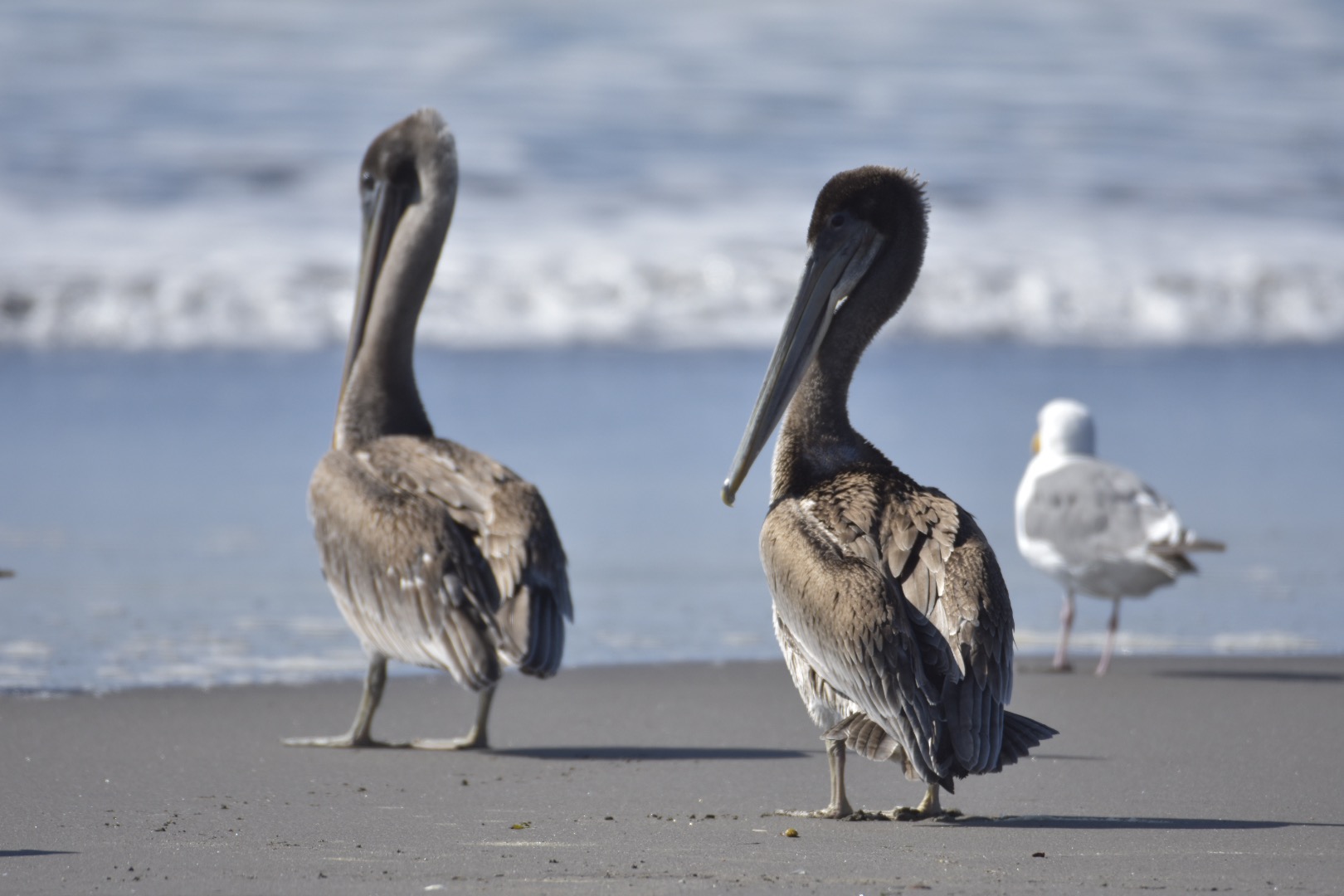
We also have a project with NASA genomics scientist Ken Cullings; he is doing research to see if/how fungi can eat plastics, filter water, and basically see which fungi can do the best at what. We want to work with the fungi to see how they can help us, we call it fungal bioprospecting. Something really fascinating is that we are more closely related to the fungi kingdom than any other kingdom; there is a lot we can do with fungi that we just haven’t discovered yet.
WB: Walk us through how your Blue Schools program helps to get students hands-on in the conservation conversation. Explain to us the most rewarding part about seeing younger generations take interest in care in protecting our oceans.
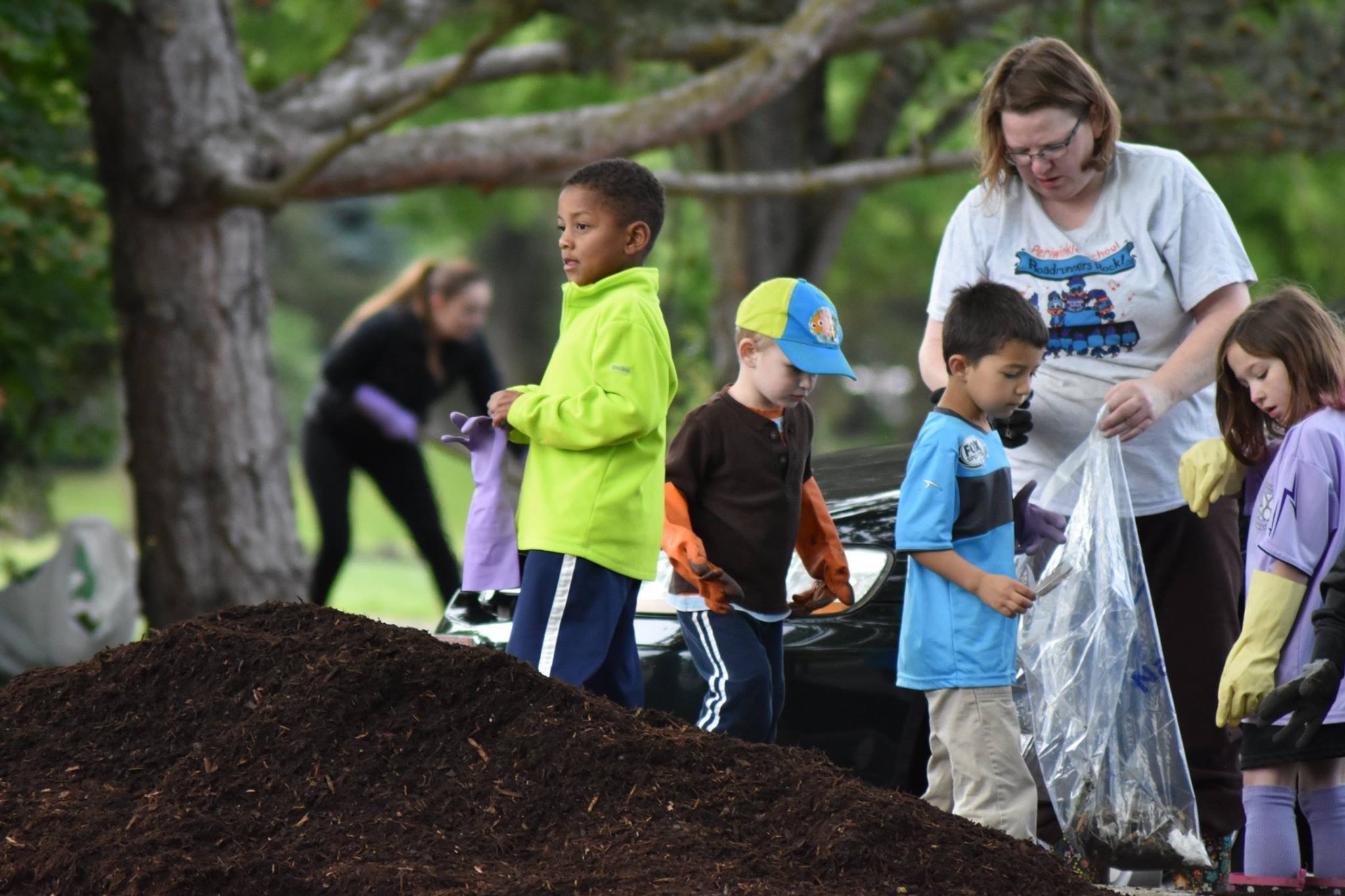
KA: Well, I told you what made me cry earlier, and these kids make me cry too. When I see what they put together, it’s tears of joy. During Covid, Richard and I were brainstorming on what the most impactful thing we could do was without group events as an option. We came to a consensus on developing a curriculum with Next Generation Science Standards and developed grade-based curriculum hands-on lessons that started with the Ocean Debris Science Kit. The kits are made up entirely of ocean debris from beach cleanups. It’s hands-on, in the classroom, and outdoors. We want this program in every student’s hands in the US in ten years, whether they’re in a classroom or homeschool. Youth education is vital; you can’t teach an old dog new tricks. Our habits and values are forming and taking shape during these educational years, so we created Blue Schools. I worked remotely with a school in Massachusetts and taught over 300 students about watersheds and which waterways flow into the ocean. It’s something that people are unaware of, so I wanted to start locally with young students in their own school yards and neighborhoods. We are a one-world ocean—all currents, rivers, and waterways are connected—so knowing which waterways flow where is very important in helping the ocean.
WB: If there weren’t any organizations out there like Ocean Blue Project, what would our oceans and planet look like?
KA: I am a really positive person and try to be optimistic, so I can’t visualize that, but that would be just over the top devastating. Without organizations not only cleaning up but also educating and working on policy change for a better future, it would not be good. We have to have education, prevention, cleanups, and the whole shebang. It’s like weeding a garden. You have to keep at it. Or cleaning your kitchen. You can’t just do it once and be finished with it. There’s always that greed factor and bottom line GDP that drives the economy and everything we do. For some reason, our value systems have many of us disconnected from nature, the land, and the ocean, and I think these organizations and Ocean Blue are reminders that we’re fighting for a better, cleaner ocean. Not only the ocean but also the wildlife. We have a duty to be their voice and representation.
WB: One easy way for anyone to make a sustainable / environmentally-focused change in their life that will benefit the health of the oceans?
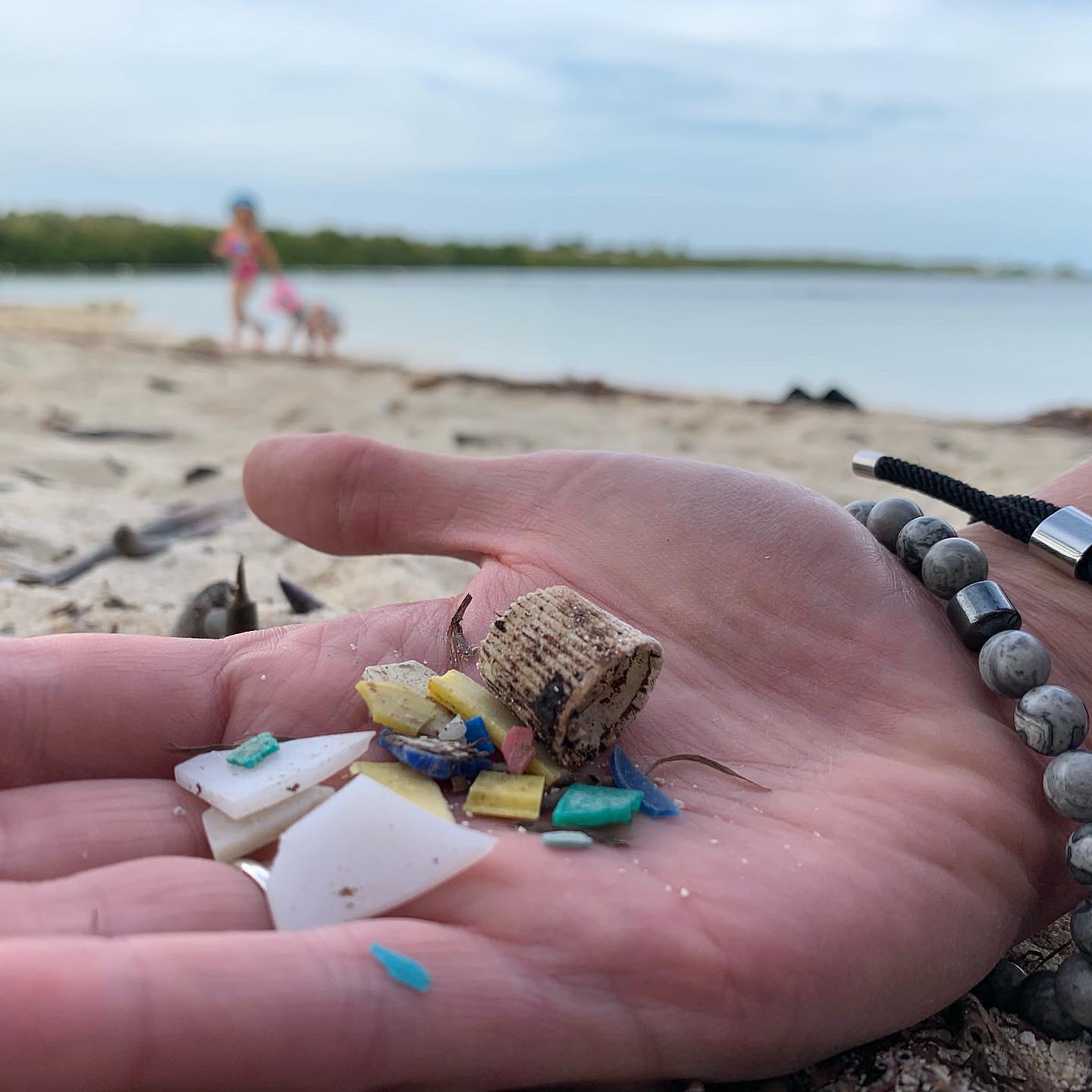
KA: We have a “Cleanup 3 for the Sea” movement that we are getting going. If you take a walk, whether it be from your car to the store, around the park, or to your school, you will see litter. If we all clean up just three pieces every day, with eight billion people on this earth, even if half of those people cleaned up, think about the impact that would have. Even just being in that mindset and noticing what the garbage is and where it comes from will make people more aware. It’s easy and free; we’re not telling you to go buy a reusable water bottle or tote bag. On that topic, reusable water bottles are absolutely wonderful, but they’re not always practical. If there’s a natural disaster where people need water, we need to get them water. This is where Boxed Water comes in; when single-use water bottles are necessary, Boxed Water is a great alternative to the plastic bottles we see along waterways and on beaches everywhere.
WB: Someone in the conservation world right now that is inspiring you?
KA: It has to be the youth I get to work with through Blue Schools. If the issues of our ocean and waterways were solved or on track to be solved in a timely manner, I’m sure I’d have an adult to be inspired by. For now, my inspiration lies in hope for the future, and what’s the next generation if not hope? Youth stewards are what keep me going, and if I’m ever looking for answers, I look to the children. Their feedback usually has the insight to help me find my answers. They are the ones inheriting the mess, including my own children. That’s what inspires and motivates me to do what I do.
WB: What was the moment when the water changed you?
KA: I love this question. I feel like there were a variety of moments, but my first memory of the ocean was with my older sibling and some friends on Kangaroo Island in Australia. I was going out with older kids—the ocean was beautiful and vast and big and kept getting deeper and deeper. A friend put me on his shoulders, as we went deeper I was just in awe and developed a profound respect for the ocean and how powerful it is.
Flash forward to when I was about 20 on the Big Island of Hawaii. I was at Kiholo Bay, at the Turtle Sanctuary Bay, with my toes in the sand under the moonlight and just heard this powerful breath. There was a sea turtle in this brackish water that I did not expect to see in this habitat. Hearing that breath and connecting that breath with the water and the ocean was so powerful. We are all born from water, and hearing that turtle take a breath was the moment I connected life with the ocean and water changed me.
What is the change you are looking to make in the water?
KA: I think that my personal mission is really tied in with the organizational mission: I want to collect one million pounds of debris so we can up that goal. I want to see more people caring about the ocean, and that’s our biggest challenge is getting more people involved. I also want to shout out to everyone that does care, from everyone at Boxed Water to all of our volunteers and employees as well.
WB: What is one thing anyone can do to help or get involved?
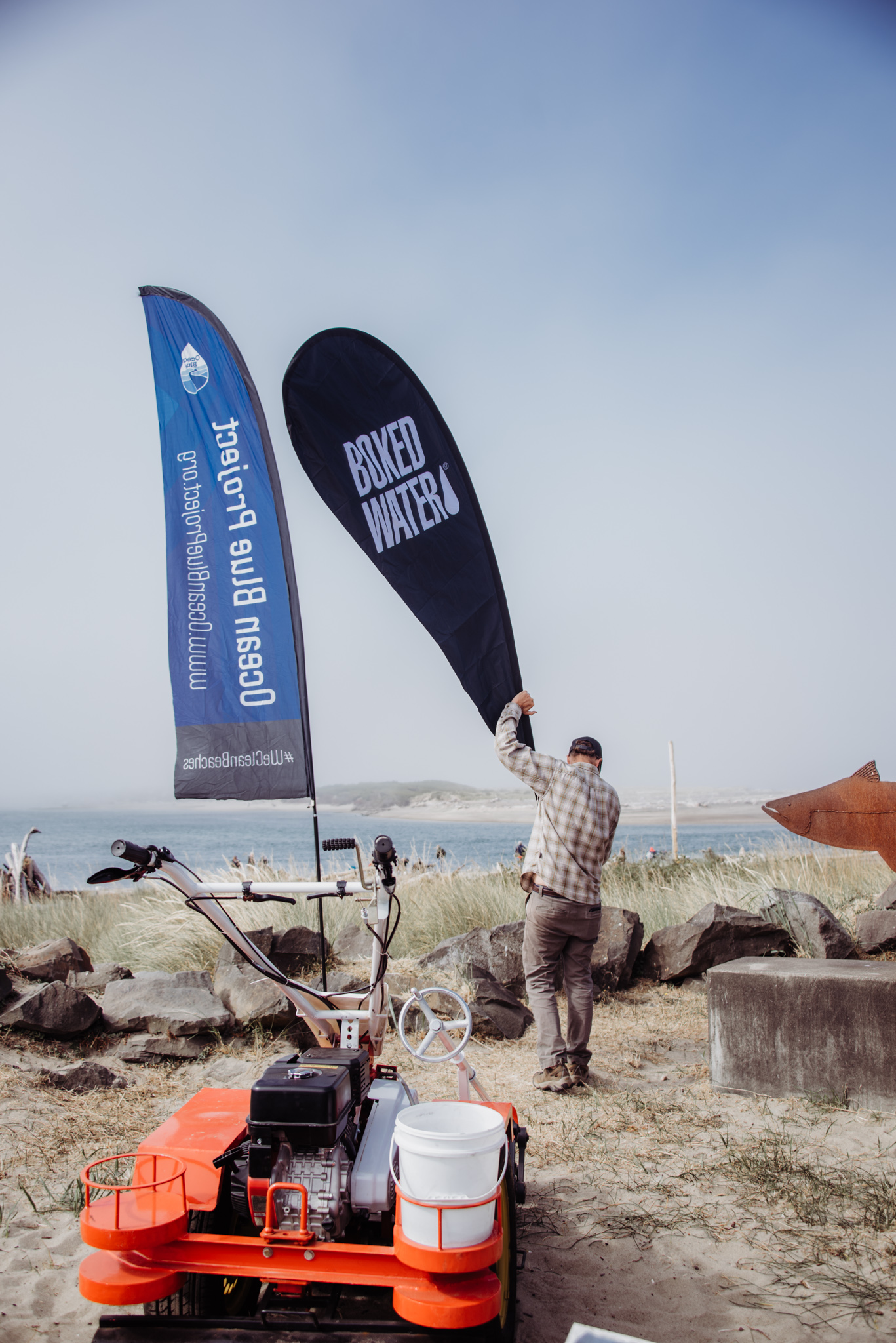
KA: We have our Create a Cleanup Program, where you can register to be an Ocean Blue Cleanup Crew Leader and create a cleanup local to you, or anywhere in the US. You can create and lead a crew (whether it be your high school, a church group, or your business team)or we’ll guide you in DIY cleanups to help us and the ocean.

